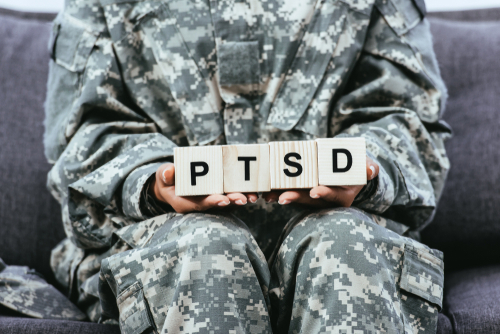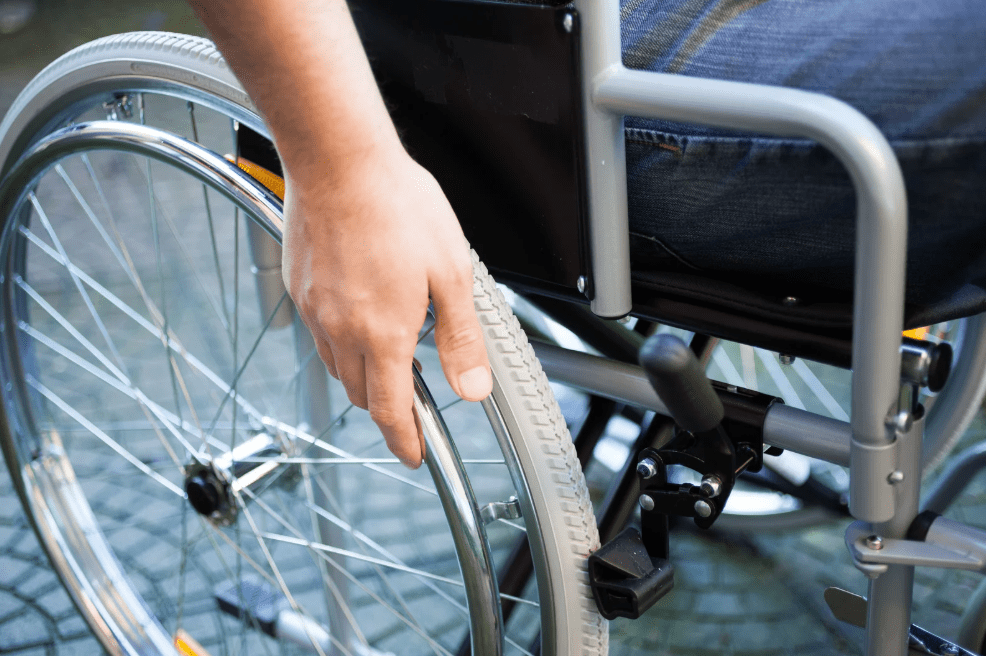
Table Of Contents
If you are reading this you have probably already filed a claim for PTSD and been denied. It’s frustrating enough to be denied but what makes it worse is that you have probably heard a number of other veterans at the VFW, American Legion or elsewhere tell you about how they won their PTSD claim. So, you must be wondering “Why me”?
First, there is no grand conspiracy at the VA to deny PTSD claims. The VA does grant them on a regular basis. However, the VA has created a complicated system to win a PTSD claim and puts a great deal of pressure on the veteran to prove it.
Let’s start with the basics.
To win a VA disability claim for PTSD you must prove the following:
- A current diagnosis of PTSD
- An in-service stressful event
- An opinion by a qualified mental health expert that the PTSD is related to the stressful event (called a “nexus” opinion).
Let’s break these down further and talk about where the traps are in each one that make it difficult to win.
1) A Current Diagnosis of PTSD
Claims for PTSD frequently fail because the VA says there is no diagnosis of PTSD. If the VA has told you that you were denied because you don’t have a diagnosis of PTSD you have a few options:
- Start getting treatment at the VA for the symptoms of PTSD. See if the mental health providers believe you have PTSD. If they will diagnose PTSD you now meet the first element of a diagnosis of PTSD.
- If you have been treated at the VA and they haven’t diagnosed PTSD, or, if you don’t want to receive treatment at the VA, you can go to a private mental health provider, preferably a licensed psychologist or psychiatrist. If they ultimately diagnose you with PTSD you have met the first element of a diagnosis of PTSD.
2) In-service Stressful Event
The second thing you have to prove in a PTSD claim is that you were exposed to an event called a stressor. This means an event that was sufficient to cause you anxiety, fear, or other psychological distress. This can be a combat stressor such as being attacked in battle, being shot, seeing others die, etc. Stressors can also be non-combat related such as military sexual trauma, assault by other service members or non-service members in a combat environment, hazing, or training accidents, etc.
There are different rules for proving a combat stressor and a non-combat stressor.
If a combat stressor occurs in a recognized combat environment, the veteran may not be required to prove that the actual stressful incident occurred. This is extremely helpful to veterans because it’s frequently very difficult for veterans to find actual proof that a stressful incident occurred. All that is required in these situations is for the veteran to provide proof that they served in combat at the time of the incident and that the circumstances of the stressful incident are plausible. If there is evidence that the veteran engaged in combat with the enemy, the veteran need only submit a written statement to support the occurrence of the stressor. The described stressor must be consistent with the circumstances, conditions, or hardships of the veteran’s service, and there should not be clear and convincing evidence that the alleged stressful event(s) did not occur.
If a stressor did not occur in a combat environment the veteran has the burden of proving the stressful event occurred. This can include sworn statements from witnesses to the event. Statements can be from battle buddies. Other evidence would include records that the event itself occurred such as medical records showing treatment at the time, police reports, line of duty reports, etc.
3) A Nexus Opinion from a mental health provider that your PTSD is related to the stressful event
The third element to proving a PTSD claim is a called a nexus. This simply means that a qualified expert, in this case a licensed psychologist or psychiatrist, has reviewed your claim and expressed a written opinion that your PTSD is related to the stressful event.
VA Duty to Exam
If you have demonstrated that you have a diagnosis of PTSD the VA will send you to the VA or a VA contractor for a Compensation and Pension Examination. The examiner will review your file and interview you. They will then complete a Disability Benefits Questionnaire. In it they will express an opinion of whether they think you have PTSD and whether they think your PTSD is related to the stressful event.
If the VA refuses to give you a VA examination, they may be violating the advocate. The VA must provide a VA examination if the evidence shows that the veteran has a current disability or persistent or recurrent symptoms of disability; and that the disability or symptoms may be associated with military service. See 38 C.F.R. § 4.2 (2006); See also Stegal v. West, 11 Vet.App. 268, 270-271 (1998).
You can use this information to argue that the VA should give you an exam if they have denied you one and you have a diagnosis of PTSD.
Common Mistakes in VA Examinations
The VA examiners in PTSD claims make a number of repeated mistakes. These mistakes can be argued as a basis for determining that the examination is so flawed that it should not be used to deny benefits. Instead, a veteran can argue that a new VA examination should be scheduled and done correctly.

Common mistakes include:
- Not thoroughly reviewing the veteran’s file (C-file). This results in a failure to catch various stressor information, evidence of treatment and diagnosis of PTSD, etc.
- Failure to consider statements and other evidence from the veteran. VA examiners rarely mention the statements from the veteran or other people including battle buddies, families, and friends. These statements provide significant relevant evidence as to stressful events and the PTSD symptoms the veteran is facing.
Tips for Compensation and Pension Examination
- Be aware – The examiner may be watching you even as you come into the building.
- Be honest – The examiners will be looking at your medical records and will point out contradictions with your personal statements at the examination as a basis to say your statements aren’t credible. Don’t exaggerate your symptoms.
- Be thorough – Don’t hold back on the symptoms you are experiencing. The severity of the symptoms you experience is in most instances the basis for a higher rating. If you minimize the symptoms you may minimize your rating.
- Be prepared – Get your treatment records before the exam. VA records are free. Review them with your spouse or close family member to make sure they are consistent with what the other person has observed.
- Don’t argue – Be nice to the examiner even if you don’t agree with how the exam is being handled or what the examiners say.
- Don’t dress up – Be yourself. Dress as you would on a typical day. It’s ok to wear jeans and a t-shirt if that’s what you normally wear. If you dress up more than normal the VA may use that to say you are functioning more normally than you really are.
- Bring a spouse or family member if they will allow it.
Private Examinations
If the VA examination you received was not favorable and resulted in your claim being denied you can point out mistakes in the examination as noted above. You can also talk to a private treatment provider if you have them and ask them to prepare a report on your behalf. They would need to be thorough in addressing the issues noted earlier in this discussion. If you aren’t getting treatment with a private medical provider or they won’t provide you with a report, you can look around for a private examiner that may be willing to assist you. Check with veteran’s forums or simply search the internet.
In conclusion, winning a claim for PTSD can be complicated with many challenging legal issues. It is also worth pointing out that according to the VA’s own Board of Veterans’ Appeals, veterans who are unrepresented are more than twice as likely to get denied than those who have an advocate.
If after reading this you are confused or not comfortable proceeding without assistance please contact us at 855-855-8992 for a free consultation.

How Long Does It Take for My VA Disability Rating to Become Permanent?
How Long Does It Take for My VA Disability Rating to Become Permanent? Securing your VA disability...

Celebrating 250 Years of the U.S. Army
Celebrating 250 Years of the U.S. Army If it feels like the U.S. Army has always been there,...

THE DIFFERENCE BETWEEN 100% FOR UNEMPLOYABILITY AND 100% DISABILITY RATING
THE DIFFERENCE BETWEEN 100% FOR UNEMPLOYABILITY AND 100% DISABILITY RATING In general, neither the...





